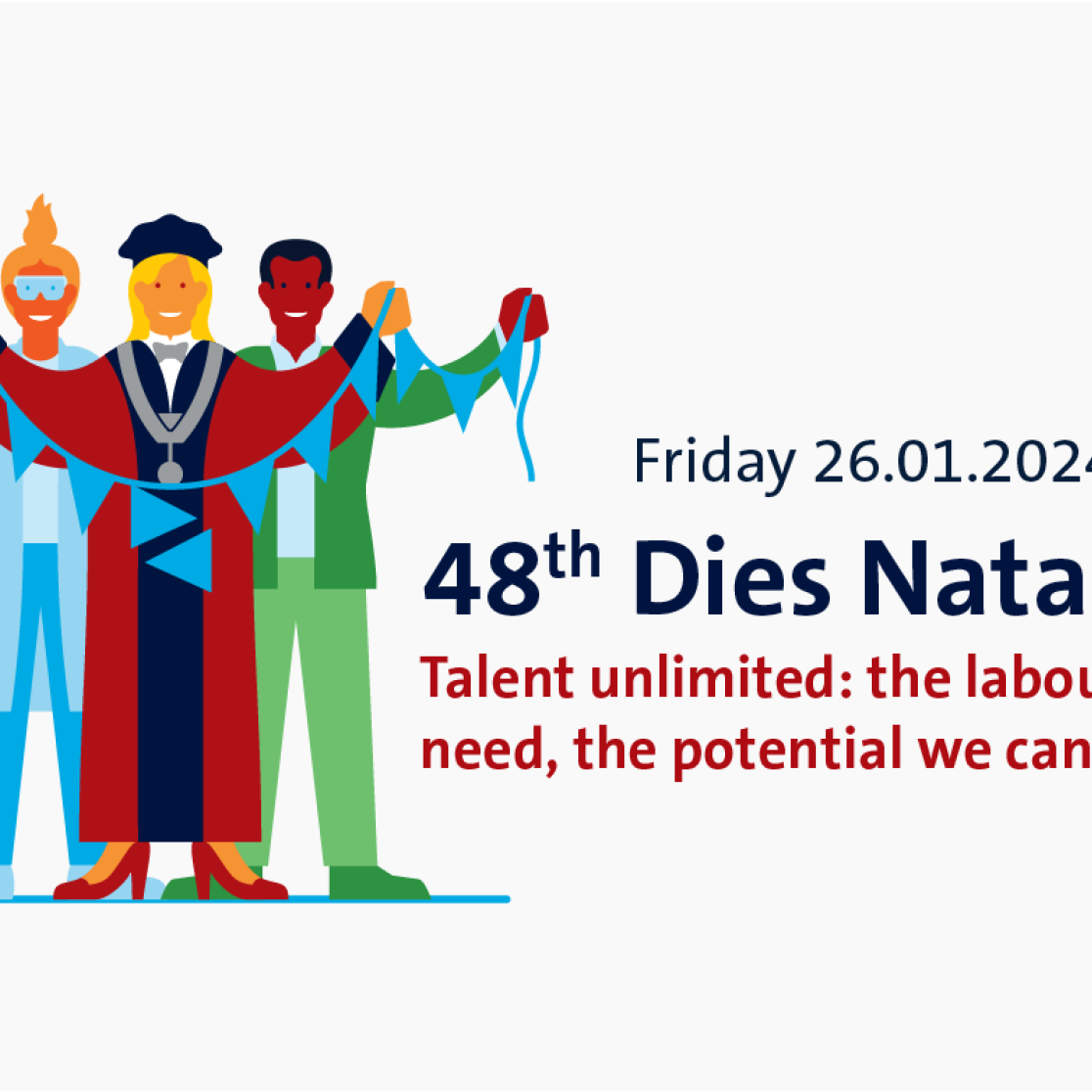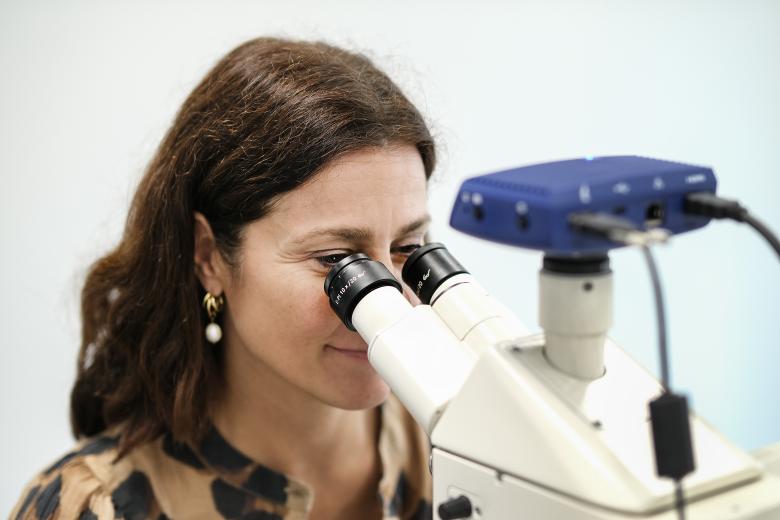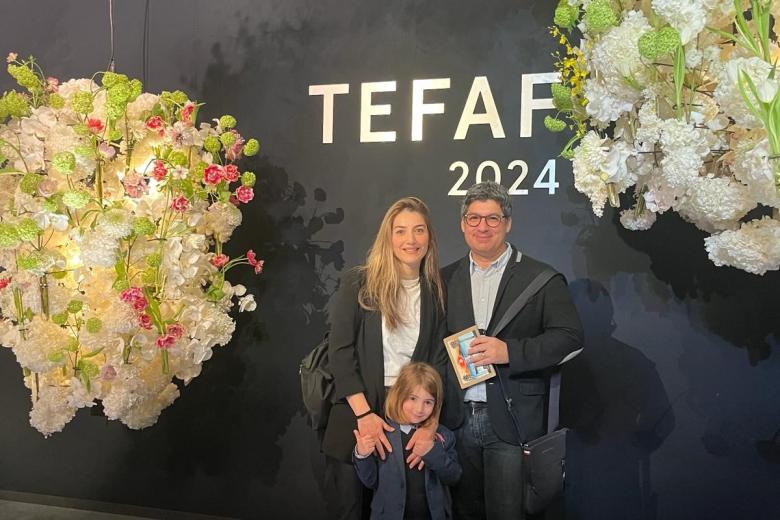Professors Hooghe and Marks: champions of multilevel governance
For the first time in the history of Maastricht University, an honorary doctorate will be awarded to a married couple: Liesbet Hooghe and Gary Marks. Together, the professors devised and developed the concept of multilevel governance, which they have been championing for more than 30 years. “We’re very happy with this honorary doctorate. Especially when we found out who received it before us—it’s great to be included in such a prestigious list.”
Liesbet Hooghe and Gary Marks are professors of Political Science at the University of North Carolina. Before they met in the early 1990s, they were each individually involved in EU politics. But that wasn’t the only thing they had in common. Earlier, both had left their native country to work on their academic careers.
America
Marks moved to America after studying Economics and Political Science at the University of Birmingham. “If you wanted to get into political science in the early 1970s, that was the place to be,” he says. He decided to stay, and was promoted from assistant to associate professor, and, in the mid-1980s, to professor of Political Science at the University of North Carolina.
Hooghe exchanged KU Leuven for Oxford University, where she worked as a postdoctoral researcher in political science in the early 1990s. She first read an article on multilevel governance by Marks in 1992. “I was impressed by his ideas, and decided to invite him to a conference I was organising.”
Spark
There was an immediate spark. “I invited Liesbet to dinner,” Marks says, “and one thing led to another: we became a couple and then got married.”
Together they delved into multilevel governance, a concept that explores the interplay between different levels of authority: domestic and international. The theory emerged from a study on the new structures of the European Union established with the Maastricht Treaty in 1992.
Criticism as fuel
Their first joint article appeared in 1993. “It wasn’t exactly embraced,” says Hooghe. “Looking back, the time probably wasn’t ripe for our vision. But we believed in it. We decided to use the criticism as fuel and keep refining our ideas.” Multilevel governance achieved its breakthrough in 1996, and has since become an indispensable part of political science.
Writing articles together is a privilege, they say, but also intense. “Normally you meet with your co-author to discuss your work. But because we’re married as well as working together, we’re actually thinking together 24/7: while eating, before going to sleep,” Marks laughs.
Naturally, they have disagreements during the writing process. But that keeps them on their toes, Hooghe says. “The advantage is that we’ve really developed and expanded the concept of multilevel governance together. It’s not that one knows more about it than the other. The concept was new to both of us, so we grew together.”
Honorary doctorate
When asked about the highlight of their respective careers, they answer unanimously. “This honorary doctorate—it shows enormous appreciation for our work.” They also have fond memories of the chair they held at VU Amsterdam from 2004 to 2016. “It was inspiring for us to work with young, talented PhD candidates. We always learn a lot from them too,” Hooghe says. “And it’s nice to see that students we supervised now have good academic jobs.”
Partly thanks to that chair, the study of political science has acquired a good reputation in Europe. “You don’t necessarily have to go to America anymore for the best education,” Marks says. “We’re proud and grateful to have been able to contribute to that.”

About the 48th Dies Natalis
Friday 26 January 2024 marks the 48th anniversary of Maastricht University. During the celebratory gathering at the St. Janskerk, Professor Robert Dur will give an inspiring keynote lecture. Rector Pamela Habibović will award the Wynand Wijnen Education Prize, the Dissertation Prize, and the Master’s Student Prizes. Our very own FASoS graduate and singer-songwriter Josh Island will perform during the ceremony. This year, we also have the privilege of presenting two honorary doctorates: one jointly awarded to Professors Liesbet Hooghe and Gary Marks, and another to Professor Christian Leuz.
More information
European Research Grant
Given their work at the University of North Carolina, they have long resided in the US, but will spend the coming year at the Robert Schuman Centre for Advanced Studies of the European University Institute in Florence. “We received a five-year European Research Grant to study political polarisation in Europe and the US, together with our students,” Marks says. “It’s a very topical and relevant subject. And that’s why we’ve moved to Italy for a year.”
So is their home in the States now empty? “Our son is house-sitting,” Hooghe laughs, “so we can focus on our research without having to worry about that.”
Text: Martina Langeveld
Photography: Arjan Bronkhorst
Read more about the research of Professors Hooghe and Marks in this expert interview from Studio Europa Maastricht.
Motivation for awarding the honorary doctorate
The Faculty of Arts and Social Science (FASoS) has decided to award a joint honorary doctorate to Hooghe and Marks, who have been studying multilevel governance for over three decades. Their insights inspire many FASoS staff and students who conduct research on European and global governance, populism, Euroscepticism and national politics. The students they have supervised in recent years have become leading scholars in political science and European studies.
Also read
-
SBE researchers involved in NWO research on the role of the pension sector in the sustainability transition
SBE professors Lisa Brüggen and Rob Bauer are part of a national, NWO-funded initiative exploring how Dutch pension funds can accelerate the transition to a sustainable society. The €750,000 project aims to align pension investments with participants’ sustainability preferences and practical legal...
-
Fresh air
Newly appointed professor Judith Sluimer (CARIM) talks about oxygen in heart functioning and the 'fresh air' the academic world needs.
-
Özge Gökdemir and Devrim Dumludağ reveal differences in competitive behaviour between women in the Netherlands
Economists and spouses Dr Özge Gökdemir and Professor Devrim Dumludağ conducted a study for Maastricht University that reveals differences in competitive behaviour between women in the Netherlands. Their findings will be published soon in a scholarly journal. Here, they give us a sneak peek.